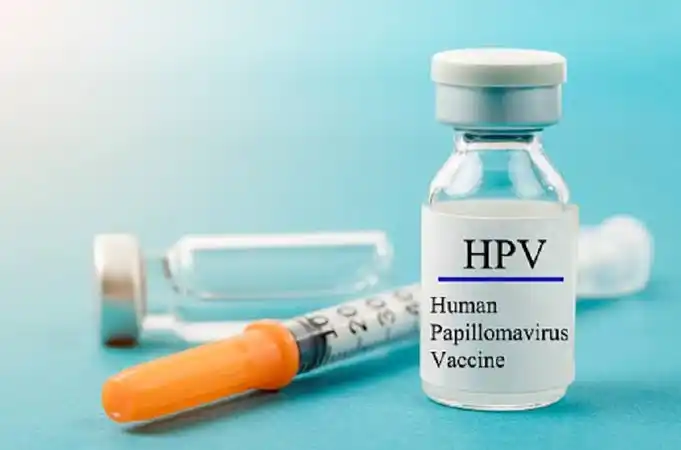HPV Vaccine: deflating infertility myth to save lives

By Victor Adeoti
Human Papillomavirus (HPV) is a common sexually transmitted infection. Many sexually active people will be infected at some point in their lives, usually without symptoms. HPV can affect the skin, genital area and throat.
Medical experts say currently, cervical cancer is the only HP-caused cancer for which screening tests are available.
The World Health Organisation (WHO) said with 24 per cent, Sub-Saharan Africa bears the greatest burden of cervical HPV.
It is followed by Latin America and the Caribbean which accounts for 16 per cent of the global infection Latin America the Caribbean are responsible for 16 per cent and East Europe and Southeast Asia account for 14 per cent each.
According to the UN agency, globally, it is estimated that 620, 000 new cancer cases in women and 70 000 new cancer cases in men were caused by HPV in 2019.
It is also said that cervical cancer is the fourth leading cause of cancer and cancer deaths in women in 2022, with 660, 000 new cases with no fewer than 350, 000 deaths worldwide
The WHO said that cervical cancers account for over 90 per cent of HPV-related cancers in women.
The international organisation, however, said that vaccination is the best option to prevent HPV infection, cervical cancer and other HPV-related cancers. It said it should be administered on girls aged 9–14 years.
Experts say HPV vaccine is not used to treat HPV infections or diseases caused by HPV, but instead to prevent the development of cancers.
They say cervical cancer, the second most common in Nigerian women, with 12,075 cases, 7,968 deaths annually, is preventable with HPV vaccination.
As a part of efforts to minimise HPV infection, the Federal Government introduced the HPV vaccine into the routine immunisation on October 24, 2023, in 15 states, and the FCT, while the second phase took place on May 27, in 21 states.
Regrettably the vaccination is enmeshed in myths and misconceptions, denying millions of Nigerian girls access to the life-saving medication.
Many parents and young girls terrified by the mere mention of the vaccine as it has been de-marketed as an agent of agent and infertility by conspiracy theorists.
Through social media platforms such as WhatsApp voice messages, doctored videos, among others are circulated to discourage parents from allowing their girl child to take the vaccine.
The conspiracy theorists tell those who care to listen to them that the vaccine is part of the Western gang up to depopulate Africa by making young women infertile through the vaccine.
Notwithstanding the myths and misconception surrounding HPV vaccine, Prof. Muhammad Pate, the Coordinating Minister of Health and Social Welfare, said no fewer than 4.95 million girls aged nine to 14 were vaccinated in the first phase of the exercise in 15 states and the Federal Capital Territory.
Pate said the figure represents 80 per cent of those eligible for the vaccine.
As part of efforts to dispel the myths and misconceptions about the vaccine UNICEF has reassured that the vaccine is safe and effective.
Aderonke Akinola-Akinwole, UNICEF Social and Behavioural Change Specialist, he media had the responsibility of properly educating the public about the safety of the vaccine.
She spoke at a two-day media dialogue workshop entitled: Combating the most Preventable Form of Deadly Cancer Affecting Women and Girls through Vaccination.
Akinola-Akinwole said that vaccination offers the best protection, adding that the vaccine is safe, effective, and provides long-term protection against cervical cancer.
She said for early diagnosis and treatment, women of reproductive age and above were encouraged to go for screening, adding that ending misconception will get protection for girls, families, and the world.
Similarly UNICEF Health Specialist, Dr Ijeoma Agbo, urged collaborative efforts against HPV infection among girl-child and women in the country.
Agbo said that HPV is the most common viral infection of the reproductive tract and caused more than 95 per cent of cases of cervical cancer.
The UNICEF Health specialist affirmed the safety and efficacy of the vaccine, adding that there was urgent need for all stakeholders to unite to sensitise Nigerians to the need to embrace the vaccine.
According to her, cervical cancer is the fourth most common cancer among women globally and the second most common cancer affecting women in Nigeria.
“There are over 100 HPV types that have been identified to date, and two human Papillomavirus types (16 and 18) account for about 70 per cent of all cervical cancer cases.
“It is estimated that 604,000 new cases with 342,000 deaths occurred globally in 2020 and an estimated 12,075 cases and 7,968 deaths recorded in Nigeria,” she said.
Agbo also said the high burden of cervical cancer could be attributed to several factors, including poor access to HPV vaccination services, poor screening and treatment, and low awareness, among others.
Agbo said that vaccination against HPV is effective in preventing persistent infection with high-risk HPV types, which are the primary cause of cervical cancer.
Also, Dr Akinpelu Adetola, the Immunisation Programme Officer, Lagos State Primary Health Care Board, said the HPV Vaccine roll-out in Lagos was dampened by the rumour messages
Adetola said the inclusion of HPV into Routine Immunsation was planned for and implemented in Lagos State but had not yielded desired results because of infertility rumours.
He said there has been continuous engagement with schools, religious bodies and influential members of the communities to improve their knowledge of cervical cancer and the need for the HPV vaccine.
Mr Muhammad Okorie, the Programme Manager, UNICEF, urged the media to do more the sensitise the public about the advantages of proven global interventions in the prevention of HPV through vaccination.
Medical experts say in Nigeria where thousands of cases are diagnosed every year, the introduction of the HPV vaccine is essential to prevent cervical cancer and reduce the burden of the disease.
They say this places a huge burden on the media to demystify the rumours around the HPV vaccine in order to save the lives of vulnerable girls.
They, therefore, urge the media to continue to provide correct and continuous information on cervical cancers and the efficacy of HPV vaccines.









